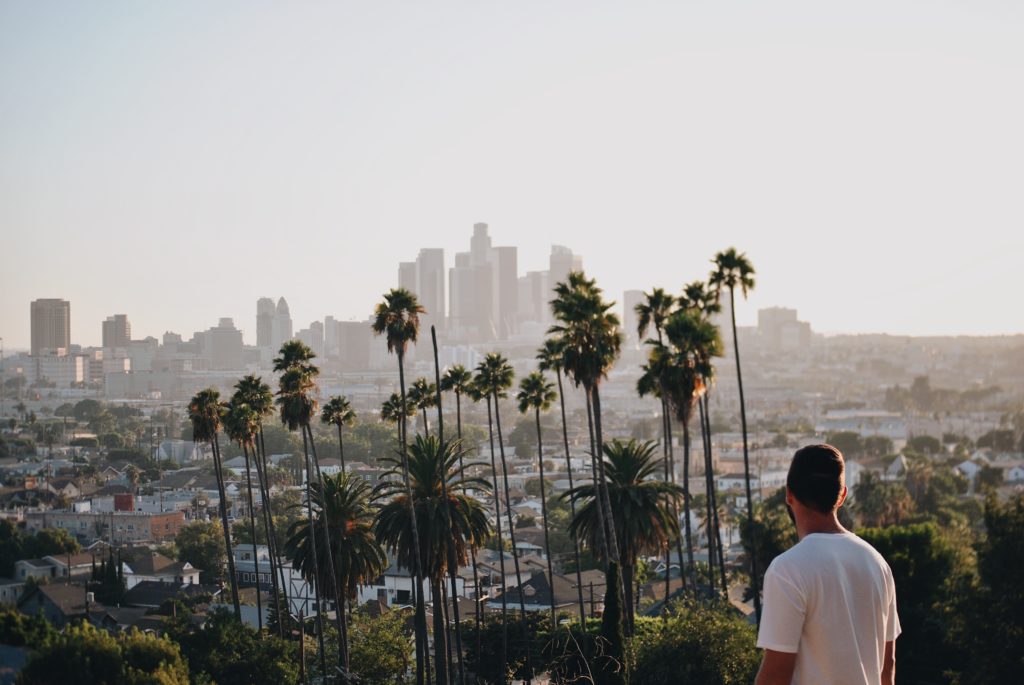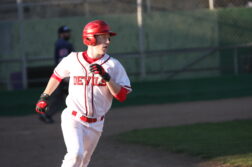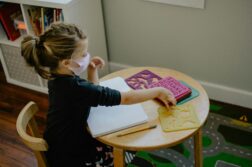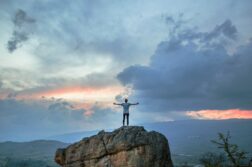
THIS ISN’T MY first pandemic. All my people were dying in the 1980s. Today, in quarantine, I think of one such person: Steven.
Steven was five feet nine inches tall and about one hundred forty pounds, just having crossed into his thirties when I met him at the Gauntlet Bar back in 1980s Los Angeles. He smacked my ass when I leaned in for a pool shot, which I missed, but I made the crossing glance to see his trickster smile. He said I was a lousy shot, so I challenged him to a game, the winner of which got to be the top. I wasn’t even really thinking of sex, though I did have a hard-on.
We spent time just being with each other, driving around L.A., commenting on the ugliness of strip malls, the art form of carwashes, the forever 1970s look of the hustlers east of Highland, the boyishness of Boys Town and the straightness of the West Side. We talked about how this Yoshinoya Restaurant was better than that one, what it was like to actually work at a Radio Shack, what late-night pizza place had the cutest guys (or at least the most available), and could we please change the station because that song belongs in the last decade, buried. We felt like we’d known each other for years after ten minutes in the car together.
He lived in Silverlake in an apartment filled mostly with his ceramics, as couple of towels and half a bar of soap. There must have been twenty of those wall-to-ceiling bookcases filled with his items. One time we were walking by some knick-knack shop in West Hollywood and he stopped in to barter with the owner on a cheap plywood bookcase, winning five dollars off a fifteen-dollar price tag, but losing the delivery in the process. I held the thing in the back of his Subaru roadster, keeping it from breaking in half while he slowed traffic to twenty miles per hour along the eastern end of Sunset Boulevard.
He loved his ceramics. He said he was moving to San Francisco to set up his own ceramics studio. He loved talking about clay, working in clay, taking pictures of clay, drawing something that would end up in clay. The undersides of his fingernails were always earthen brown. When he wasn’t working with clay, or talking about it, he was taking in the world, picturing it, molding it, framing it, and eventually working it into a piece. Even his philosophy ended up in clay. He would talk a lot about AIDS. He would soon die of it. He was my angel then and is my angel now.
* * *
I’m thinking of my angel, driving through Hollywood at three in the morning as we used to do after the bar. This is where my restlessness stops and I meet myself along the way, like a passerby at an unknown funeral. I ask the dead who I am, and in the silent alley behind Wilcox, I let the question play like a film reel spun past the credits.
Griffith Park near Western Avenue: I can breathe here, I’m free now, and I can pass the Scientology building with a laugh. The hills hide the sun from Sycamore Street, and the hustlers off Vine haunt the night with gasps of sex and sweat. The river stops here, and the crossing is hazarded by spirits too haunted to care. By the carwash across from Theater Row, I’m seized by what I know, a gaping love that bleeds without apology.
Ancient Greece is also here in L.A., right between the McDonald’s and Grumman’s Chinese. Jacob’s Ladder comes out at the Sunset off-ramp, while the broken vessels light up the Cahuenga Pass just before dawn at the Observatory.
What I remember about Steven are the things I’m telling you now, the things that flash by in the quiet moments as I drive. The way he struggled with his thick Massachusetts accent; the way he talked to his dog, and the fact that he named it Bonehead; the way he carefully showed and explained to me the same pieces of his art over and over again, forgetting that he had already done so. He was curious, and his eyes never closed.
He was awake to AIDS from the very beginning, his being one of the first diagnoses. He made it through most of the ’80s, never figuring on more than a couple of years, but as they added up, he just went with it. Then he got tired. Then normal and not so normal bad relationship things started happening between us, and he made a decision to leave L.A. and move up to San Francisco.
I search for the moment just after I told him “I’ll be up there soon” but before I arrived and saw his mail strewn inside the glass door, unopened, and the landlord found me and told me that he had “passed,” a word always used at these times by neighbors, landlords, and coworkers who have to break the news to strangers. I know the moment’s coming and I try to realize something before it slips away. I catch glimpses of it before he cums (cuddling is next, my favorite). I see it sometimes going to my car parked on a street behind yesterday’s garbage bin that was set out too late for pickup. It’s three in the morning again, the ghosts are out, and the Hollywood Freeway is wide open for me with the window down, dirty gusts freezing the sweat to my face.
There’s something about this time of night when sex and darkness and rearranged beauty cool to a murmur, and a sense of being lost finds a place of welcome in a heart opened by crazy wounds. What really happens here happens now, a little after three but before six, when the stars under the night sky are surrendering and the hipsters have gone home for another day. You have to stop chasing. Then there it is, all terrible and wonderful, like Jesus back from the desert knowing a little bit more about life than he bargained for. Somehow I found it in the arms of a man dying of AIDS, and in the side streets between Highland and Western, just south of Sunset, at an hour when I just couldn’t sleep.
Brian Gleason, PhD, is a writer and Jungian-oriented psychotherapist in private practice in Los Angeles. Brian has published articles in The Gay and Lesbian Review, Psychological Perspectives, and is also the director of Rise Up And Shout(Sundance Channel, 2008), a documentary film on the LGBT youth mentoring organization which he founded and served as Executive Director from 2007-2014.





